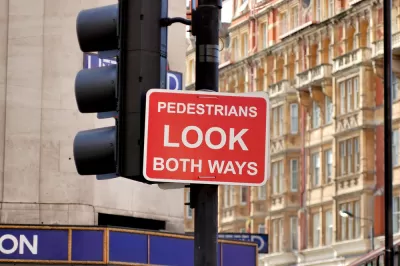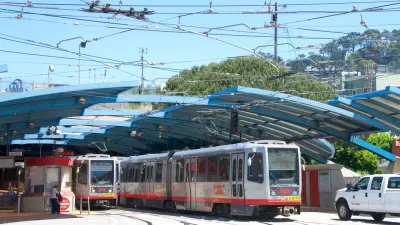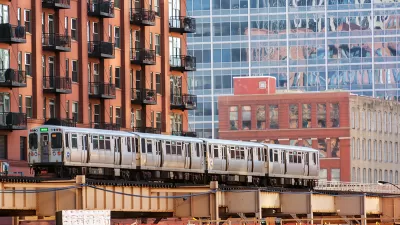The new Transit-Walkability Collaborative works to create safe, healthy, equitable, and sustainable communities by harnessing the synergy between walkability and quality public transit service.

America Walks announced today the formation of the Transit-Walkability Collaborative, whose purpose is to expand safe, healthy, equitable, and sustainable communities by harnessing the synergy between walkability and quality public transit service.
The Transit-Walkability Collaborative notes that integrating walkability and public transit helps to create safe, affordable, and enjoyable neighborhoods, whose residents complete their daily activities while owning fewer vehicles and driving less often. These communities experience significant public and private-sector cost savings, lower rates of traffic fatalities, reduced air pollution and greenhouse gas emissions, higher levels of physical activity, and a better quality of life—especially for low-income families.
"Walkability and transit advocacy complement each other and accomplish common goals neither can achieve on its own," said Ian Thomas, State and Local Program Director with America Walks and coordinator of the Collaborative. "By ensuring a high level of service for both walking and public transport, we stimulate mutually-reinforcing community benefits that help address a range of social problems – from health to economics to quality of life."
According to America Walks Executive Director Kate Kraft, “Our shared goals are to improve public health, safety, and transportation equity,” she said, "by developing complementary planning efforts, increasing funding for active and public transportation, and supporting transit-oriented development that is designed to benefit existing residents and neighborhoods."
Several upcoming events are being planned to explore the alignment of walkability and transit campaigns.
FULL STORY: Transit-Walkability Collaborative Established

Alabama: Trump Terminates Settlements for Black Communities Harmed By Raw Sewage
Trump deemed the landmark civil rights agreement “illegal DEI and environmental justice policy.”

Planetizen Federal Action Tracker
A weekly monitor of how Trump’s orders and actions are impacting planners and planning in America.

The 120 Year Old Tiny Home Villages That Sheltered San Francisco’s Earthquake Refugees
More than a century ago, San Francisco mobilized to house thousands of residents displaced by the 1906 earthquake. Could their strategy offer a model for the present?

In Both Crashes and Crime, Public Transportation is Far Safer than Driving
Contrary to popular assumptions, public transportation has far lower crash and crime rates than automobile travel. For safer communities, improve and encourage transit travel.

Report: Zoning Reforms Should Complement Nashville’s Ambitious Transit Plan
Without reform, restrictive zoning codes will limit the impact of the city’s planned transit expansion and could exclude some of the residents who depend on transit the most.

Judge Orders Release of Frozen IRA, IIJA Funding
The decision is a victory for environmental groups who charged that freezing funds for critical infrastructure and disaster response programs caused “real and irreparable harm” to communities.
Urban Design for Planners 1: Software Tools
This six-course series explores essential urban design concepts using open source software and equips planners with the tools they need to participate fully in the urban design process.
Planning for Universal Design
Learn the tools for implementing Universal Design in planning regulations.
Clanton & Associates, Inc.
Jessamine County Fiscal Court
Institute for Housing and Urban Development Studies (IHS)
City of Grandview
Harvard GSD Executive Education
Toledo-Lucas County Plan Commissions
Salt Lake City
NYU Wagner Graduate School of Public Service




























